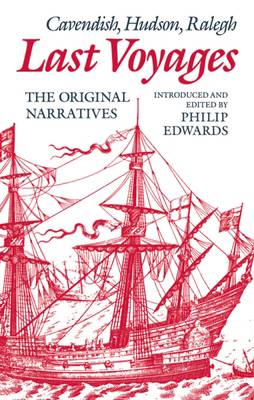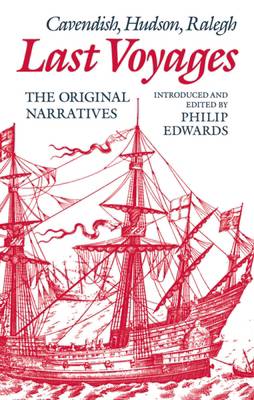
- Afhalen na 1 uur in een winkel met voorraad
- Gratis thuislevering in België vanaf € 30
- Ruim aanbod met 7 miljoen producten
- Afhalen na 1 uur in een winkel met voorraad
- Gratis thuislevering in België vanaf € 30
- Ruim aanbod met 7 miljoen producten
Zoeken
Omschrijving
The narratives of the voyages of the Elizabethan and early Jacobean era have delighted readers over the centuries as stirring accounts of the daring of empire-builders. In the belief that in our post-imperial era these writings can be seen as a powerful and special kind of literature, having kinship with the great fictional tragedies of the period, Philip Edwards here collects the contemporary accounts of three famous "last voyages". Written by the participants themselves--leaders, mutineers, young gentlemen, and a poet and mathematician--the narratives recount moving stories of endeavor and defeat in the face of difficult seas and hostile terrain. There is Thomas Cavendish's fatal attempt in 1591-92 to repeat his earlier triumphant circumnavigation; Henry Hudson's last attempt to find the North-West Passage in 1610-11, in which he was ultimately set adrift on the ice by his own crew; and Sir Walter Raliegh's failed attempt to find gold in Guiana in 1617-18, before returning to England and execution. All the narratives are given in modern spelling and have been newly re-edited from the original manuscripts or printings. Edwards's introductions correct a number of historical inaccuracies, and he includes a full explanatory commentary.
Specificaties
Betrokkenen
- Auteur(s):
- Uitgeverij:
Inhoud
- Aantal bladzijden:
- 278
- Taal:
- Engels
Eigenschappen
- Productcode (EAN):
- 9780198128946
- Verschijningsdatum:
- 19/01/1989
- Uitvoering:
- Hardcover
- Formaat:
- Genaaid
- Afmetingen:
- 162 mm x 236 mm
- Gewicht:
- 607 g

Alleen bij Standaard Boekhandel
+ 228 punten op je klantenkaart van Standaard Boekhandel
Beoordelingen
We publiceren alleen reviews die voldoen aan de voorwaarden voor reviews. Bekijk onze voorwaarden voor reviews.







